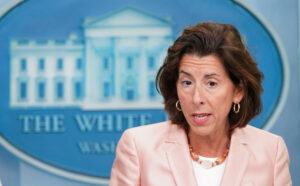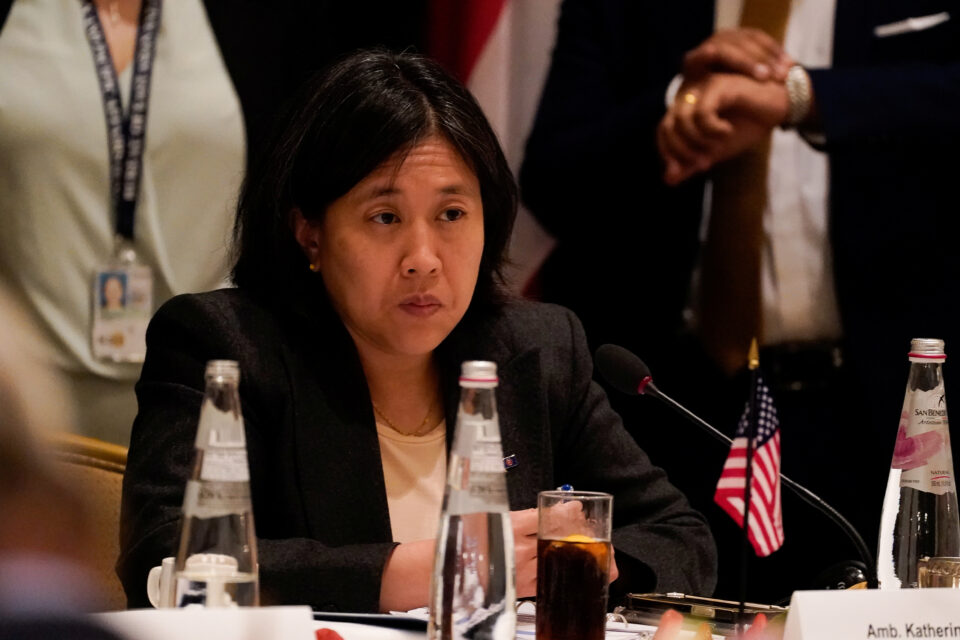WASHINGTON, Sept 9 — Economic ministers from the United States (US) and 13 Indo-Pacific countries launched negotiations on Thursday on Washington’s first major pan-Asian trade engagement effort in nearly a decade, but this time any deal will not cut tariffs.
US Trade Representative Katherine Tai said the Indo-Pacific Economic Framework talks in Los Angeles were aimed at addressing future challenges and achieving “sustainable and equitable growth” in the Indo-Pacific region.
The effort was first launched by President Joe Biden during a May trip to Tokyo.
Tai, who is leading the talks with Commerce Secretary Gina Raimondo, said the ambitious initiative was making progress, although some critics have questioned its value to participating countries.
The talks include ministers from Australia, Brunei, Fiji, India, Indonesia, Japan, South Korea, Malaysia, New Zealand, Philippines, Singapore, Thailand and Vietnam. Together with the United States, the participants represent some 40 per cent of global Gross Domestic Product.
Not TPP 2.0
“This framework will be a durable model for the rest of the world to follow,” Tai told the gathering, adding it would bring economic value to small businesses, including the 200,000 in Los Angeles.
She said the initiative would target issues such as the digital economy, labour, the environment, agriculture and trade.
Citing “extraordinary progress in recent months, Raimondo said the initiative could lead to more stable and resilient supply chains while accelerating work on clean energy technologies and anti-corruption commitments.

“This ministerial marks the next critical phase of this framework — moving from defining an ambitious vision to charting the tangible work of implementing the framework,” she said.
“We all understand and agree on the need to move quickly to deliver for our people.”
Washington has lacked an economic pillar for its Indo-Pacific engagement since former President Donald Trump quit the 12-country Trans-Pacific Partnership trade deal (TPP) in 2017, leaving the field open to China to expand its regional influence.
More than two years of TPP negotiations led to an agreement in 2015, but the US Congress failed to ratify it as tariff-cutting free trade deals fell out of favour, blamed for draining jobs and investment to low-wage countries.
Biden’s trade chief Tai also shunned new trade deals, focusing negotiations with the European Union on labour, regulation and other non-tariff issues.
It was unclear whether all countries would participate in all four negotiation streams: trade, labour and digital standards; clean energy and decarbonization; supply chain resilience; and tax and anti-corruption efforts. To secure broad participation, the countries could choose among those streams.
The talks come as the China-led Regional Comprehensive Economic Partnership Free trade deal launched in January, cutting tariffs for many of the IPEF participants. The surviving TPP countries also have launched a limited trade pact.
A senior Biden administration official told reporters on Wednesday the IPEF platform was not an alternative to trading with China.
“It is about engaging the economies in the Indo-Pacific in their own right, this isn’t a choice between the United States and China,” the official said.
Lori Wallach, head of Rethink Trade, a group advocating against corporate influence in trade policy, supported not offering tariff cuts but questioned whether the initiative could benefit workers.
“Three decades of ‘hyper-globalisation’ implemented by these deals already had made the old trade model politically toxic,” Wallach said in a statement.
“Then the Covid-revealed supply chain crisis fueled even broader demand for a new approach that reverses the concentration of production of goods and services on which we all rely in firms in too few countries.”
— Reuters





